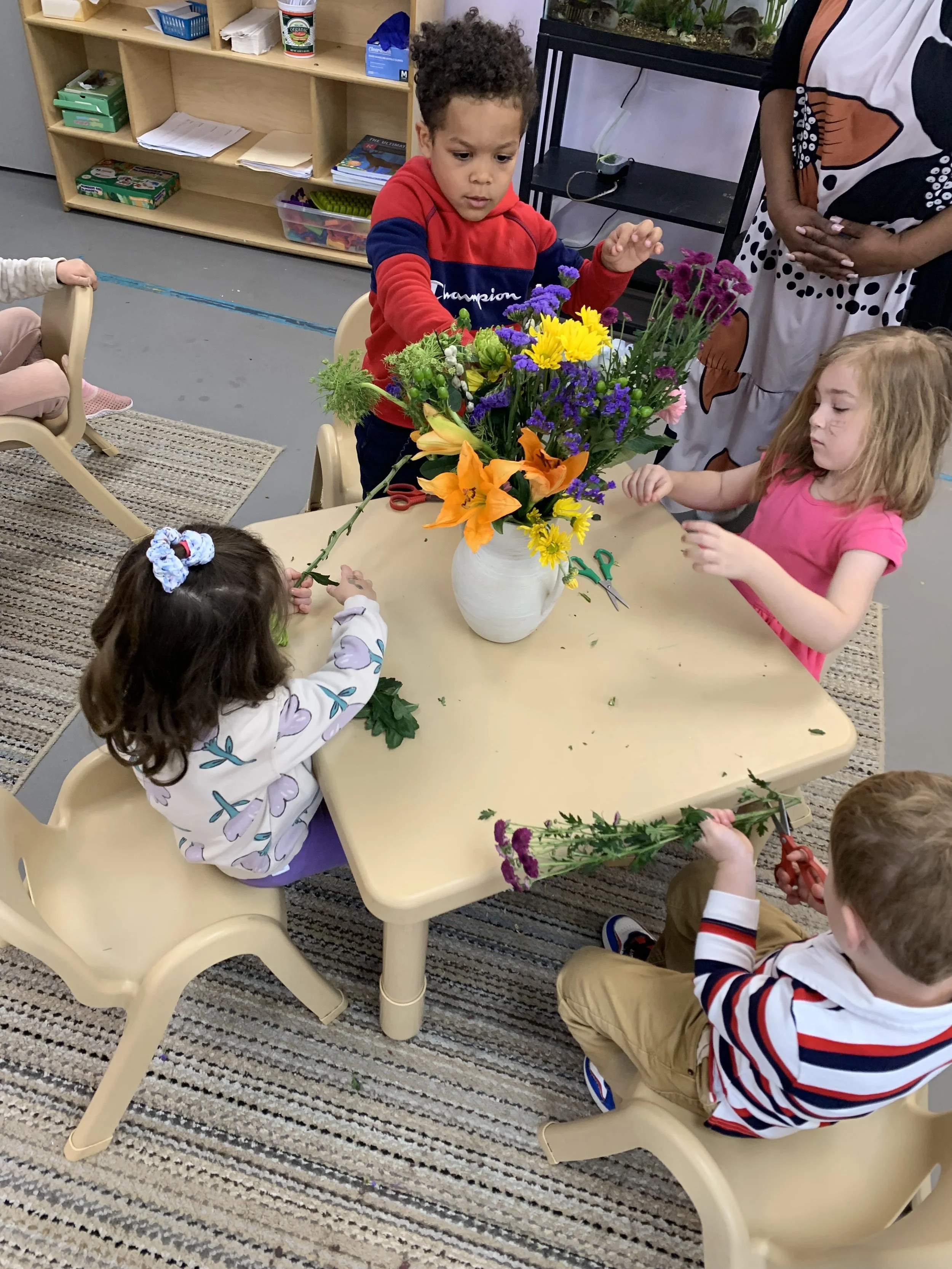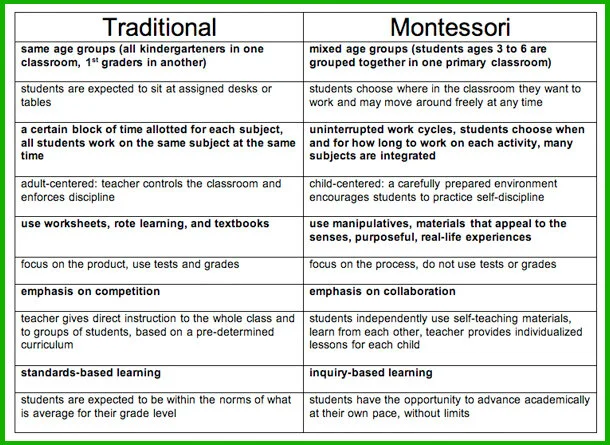THE MONTESSORI METHOD IS INTELLECT GUIDED BY THE HAND
Traditional vs Montessori
Historically, schools have often taken the approach that each subject is separate and can be taught by rote. English and math never meshed. History and science stayed totally separate. However, a Montessori-based curriculum reinforces that everything is related, showing the connection of topics across the five Montessori Learning areas: Language Arts, Mathematics, Practical Life, Sensorial, and Geography/Culture.
Research Supporting Montessori Methods
“Montessori Education Proves Better Outcomes than Traditional Methods”
Excerpt from “Evaluating Montessori Education” in the Sept. 29, 2006 issue of the journal, Science. It discusses the benefits of a Montessori method to education.
A study comparing outcomes of children at a public inner-city Montessori school with children who attended traditional preschools indicates that Montessori education leads to children with better social and academic skills.
Montessori education is characterized by multi-age classrooms, a special set of educational materials, student-chosen work in long time blocks, a collaborative environment with student mentors, absence of grades and tests, and individual and small group instruction in academic and social skills.
The Montessori school studied is located in Milwaukee and serves urban minority children. Students at the school were selected for enrollment through a random lottery process. Those students who "won" the lottery and enrolled at the Montessori school made up the study group. A control group was made up of children who had "lost" the lottery and were therefore enrolled in other schools using traditional methods. In both cases the parents had entered their children in the school lottery with the hope of gaining enrollment in the Montessori school.
"This strategy addressed the concern that parents who seek to enroll their children in a Montessori school are different from parents who do not," wrote study authors Angeline Lillard, a University of Virginia professor of psychology, and Nicole Else-Quest, a former graduate student in psychology at the University of Wisconsin. This was an important factor because parents generally are the dominant influence on child outcomes.
The children who attended the Montessori school, and the children who did not, were tested for their cognitive and academic skills, and for their social and behavioural skills. "We found significant advantages for the Montessori students in these tests for both age groups," Lillard said. "Particularly remarkable are the positive social effects of Montessori education. Typically the home environment overwhelms all other influences in that area."
Among the 5-year-olds, Montessori students proved to be significantly better prepared for elementary school in reading and math skills than the non-Montessori children. They also tested better on "executive function," the ability to adapt to changing and more complex problems, an indicator of future school and life success. Montessori children also displayed better abilities on the social and behavioural tests, demonstrating a greater sense of justice and fairness. And on the playground they were much more likely to engage in emotionally positive play with peers, and less likely to engage in rough play.


